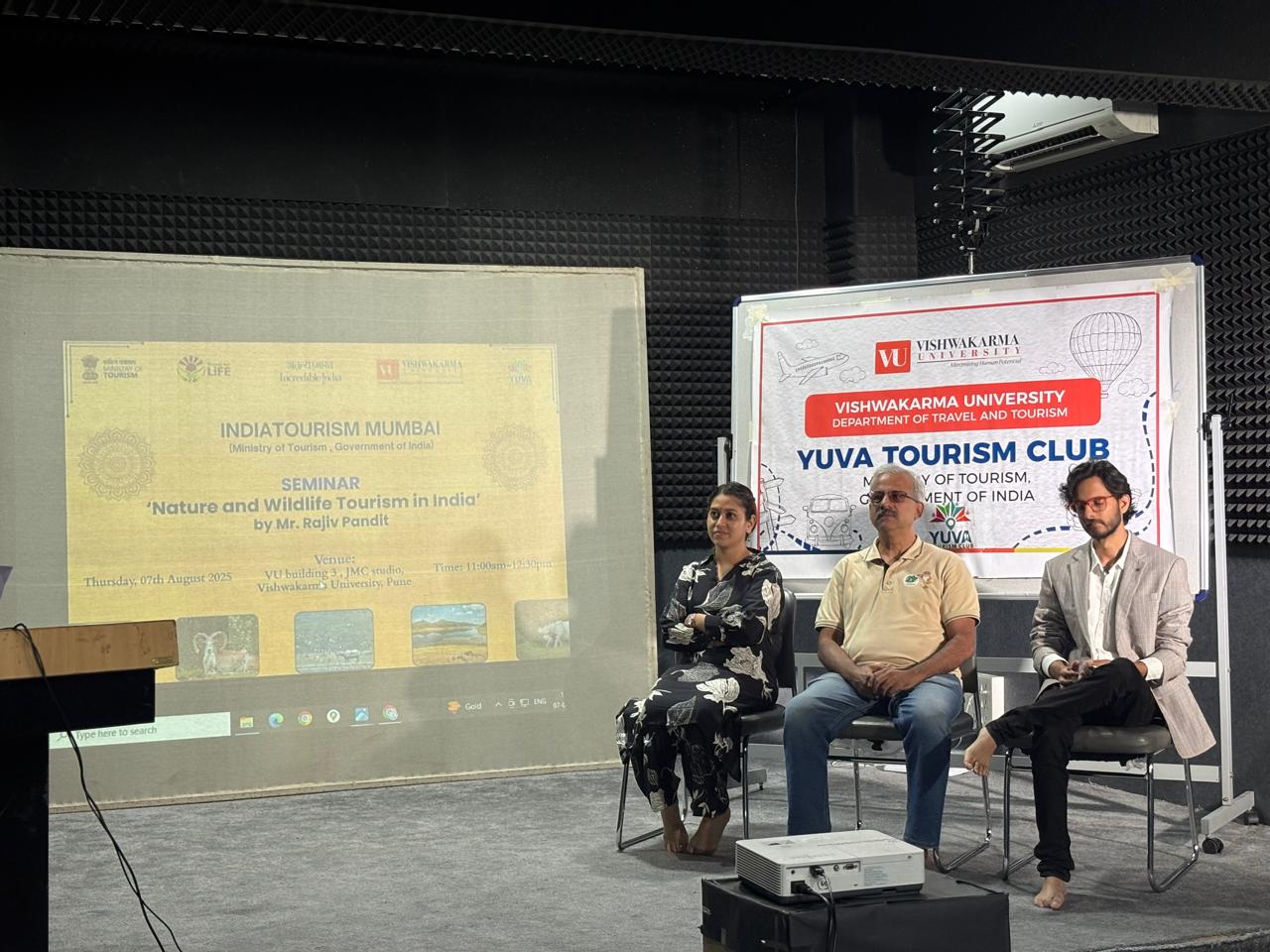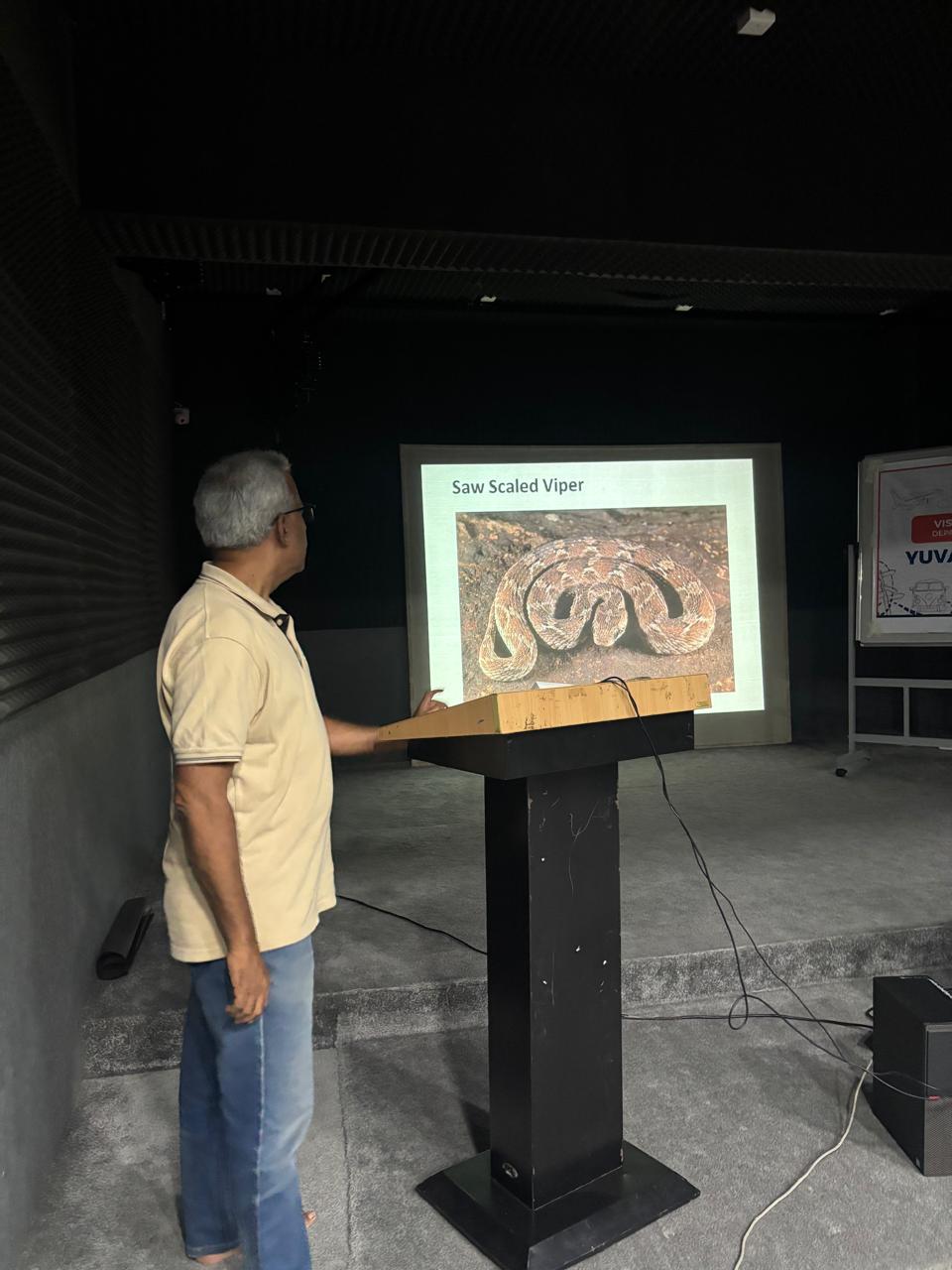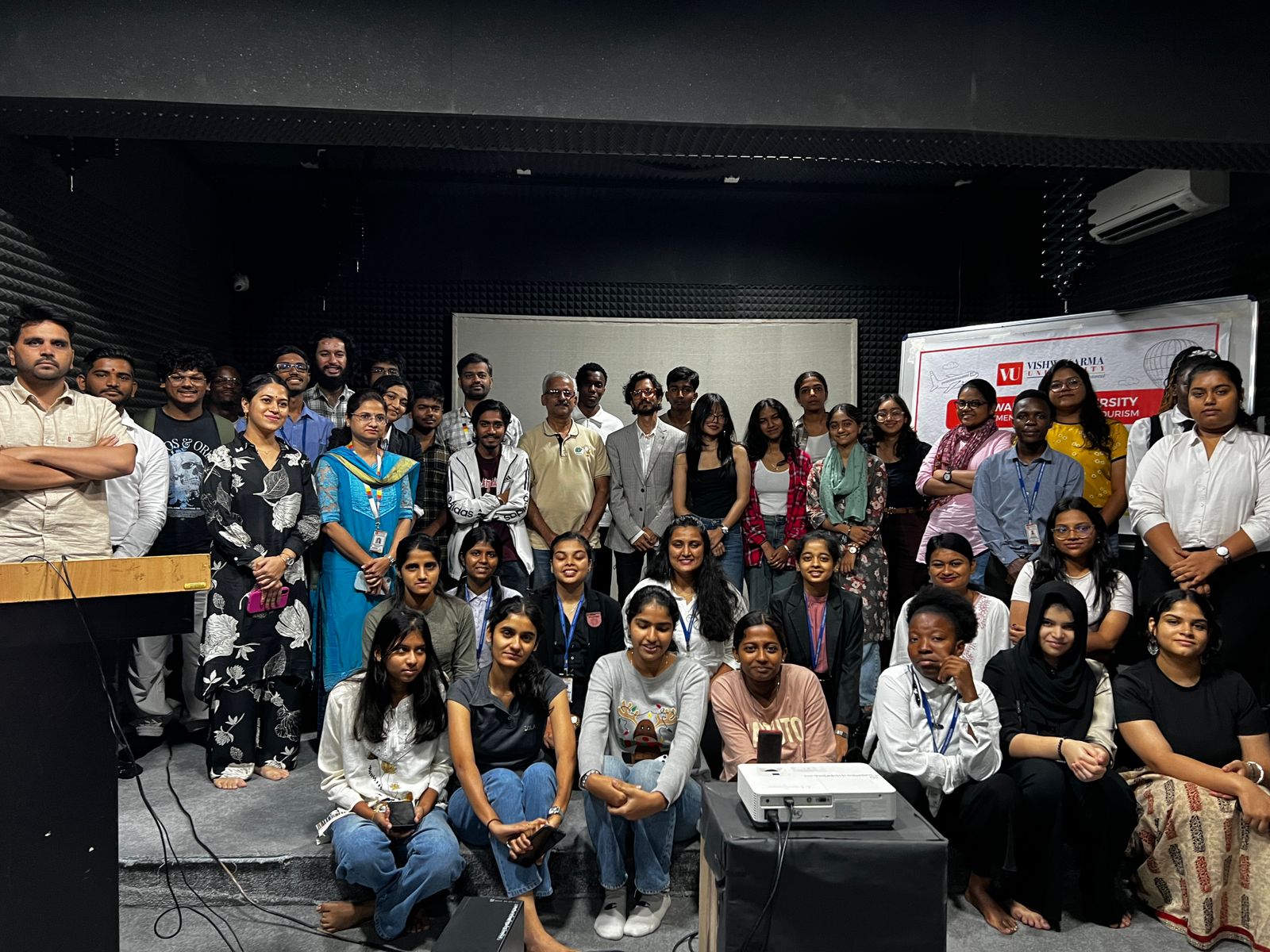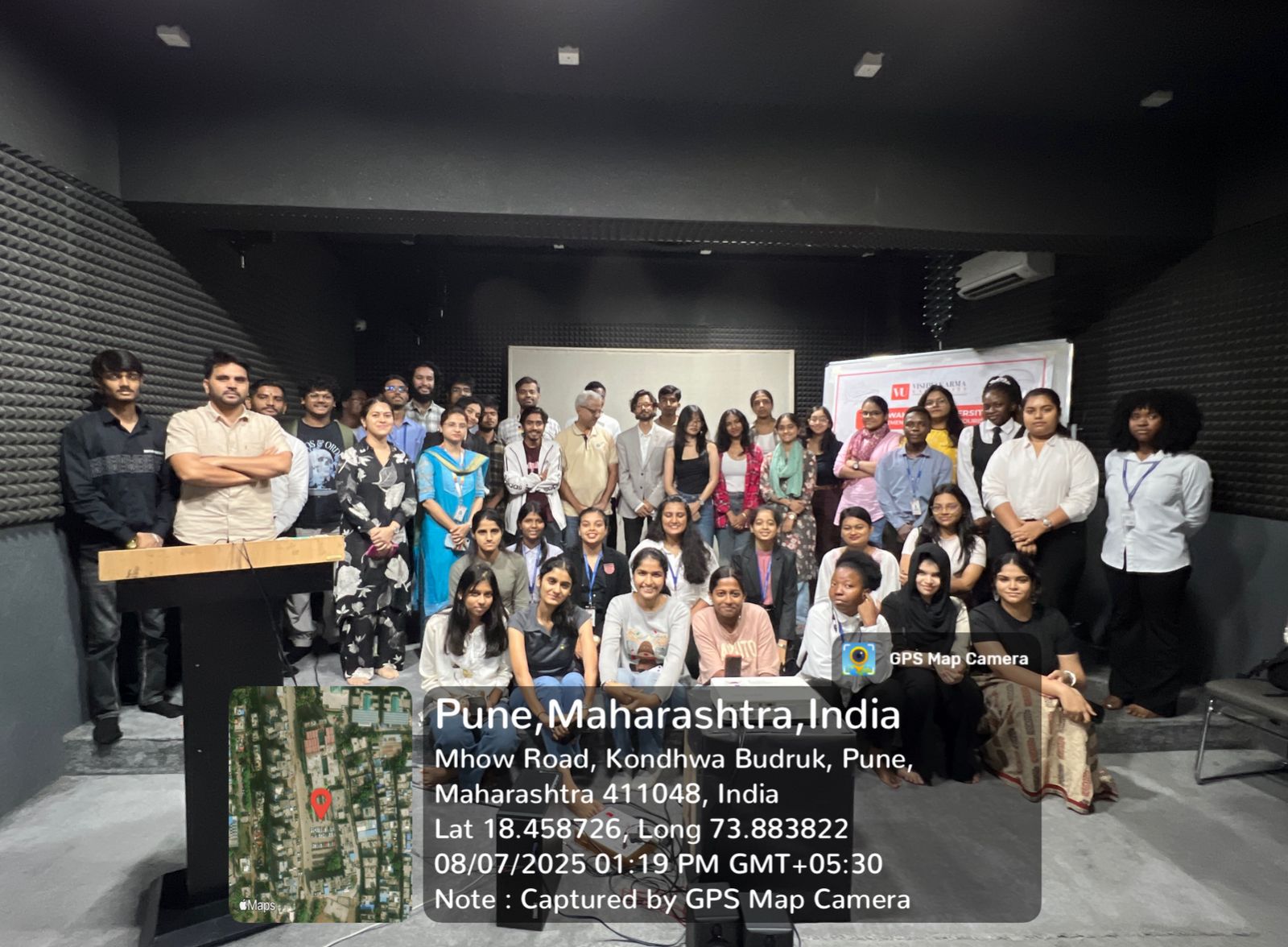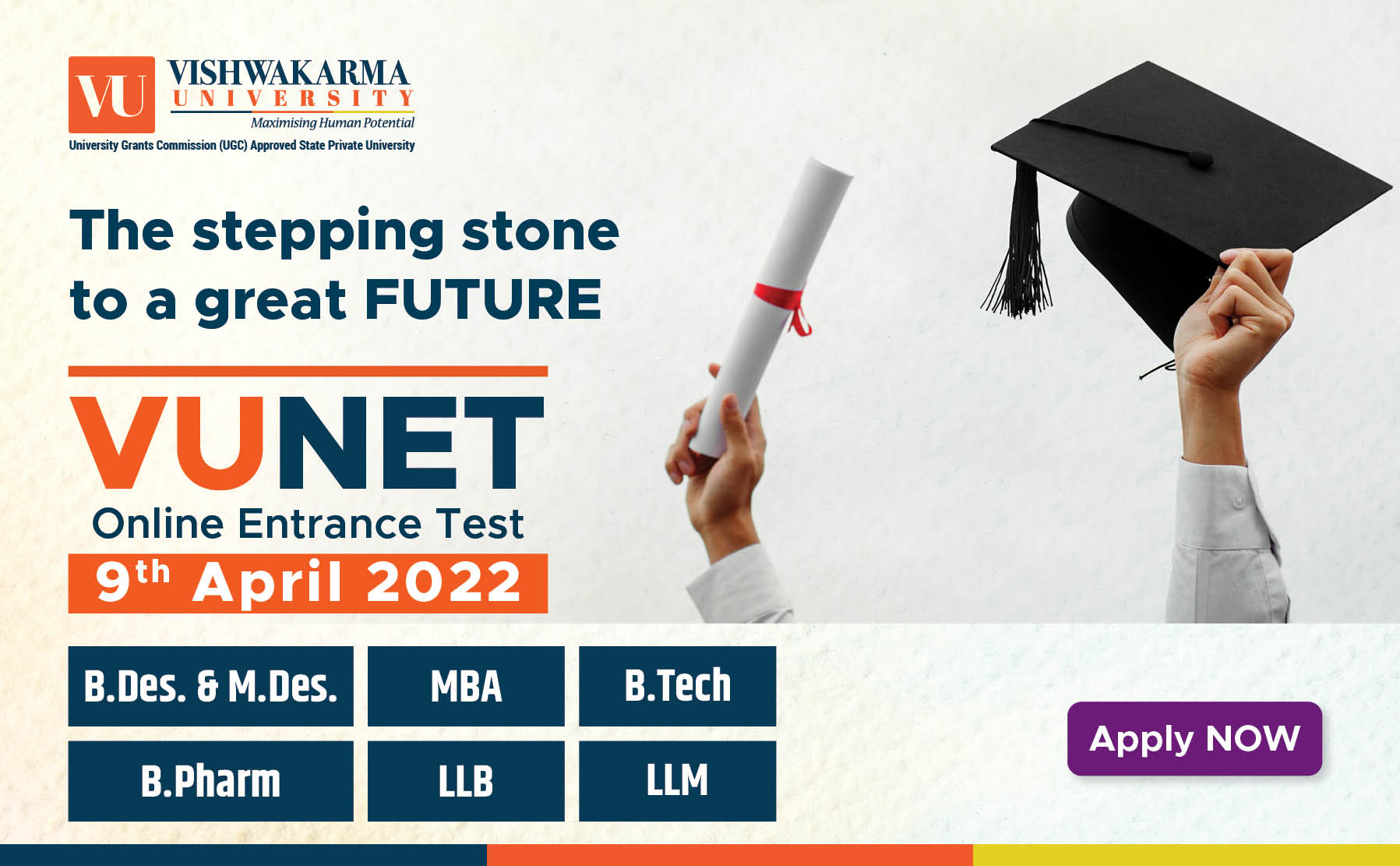On 7th August 2025, the Yuva Tourism Club of the Department of Travel and Tourism at Vishwakarma University, in association with the Department of Journalism and Media Communication (JMC), organized an insightful seminar on “Nature and Wildlife Tourism in India.” The event took place at the JMC Studio, Building 3, from 11:00 AM to 12:30 PM, and brought together students from Semesters III, V, and VII for an engaging learning experience.
The seminar was led by Mr. Rajeev Pandit, Founder-Director of Jeevidha, Pune, a highly respected expert in the fields of wildlife, ecology, and geology. Known for his deep passion for environmental conservation, Mr. Pandit aimed to inspire young minds to appreciate India’s rich biodiversity and understand the significance of preserving it through sustainable tourism practices.
The session served as a platform to bridge classroom learning with real-world experiences,encouraging students to think critically about the impact of tourism on nature and wildlife. Rajiv S. Pandit - Founder of Jividha NGO Mr. Rajiv S. Pandit was born on 17 April 1966 in Pune.Formal Education: Diploma In Industrial Electronics (D.I.E), Education In Environment, Post Graduate Diploma in Sustainable Management of Natural Resources & Conservation (Ecological Society, Pune), Certificate Course in Basic Ornithology (Ela Foundation & Abasaheb Garware College, Pune), Certificate Course in Basic Field Botany (Nisargsevak & Abasaheb Garware College), Certificate Course on Heritage & History (Arnyawak & Mahrashtra Ethihas Sanshodhan Mandal) Working: Full-time for the conservation of nature & biodiversity. Present Work
Occupation: Founder and President of Register NGO. Jividha, Proprietor of Jeevidha Outdoors, working in the field of Eco–Tourism & Environment Education
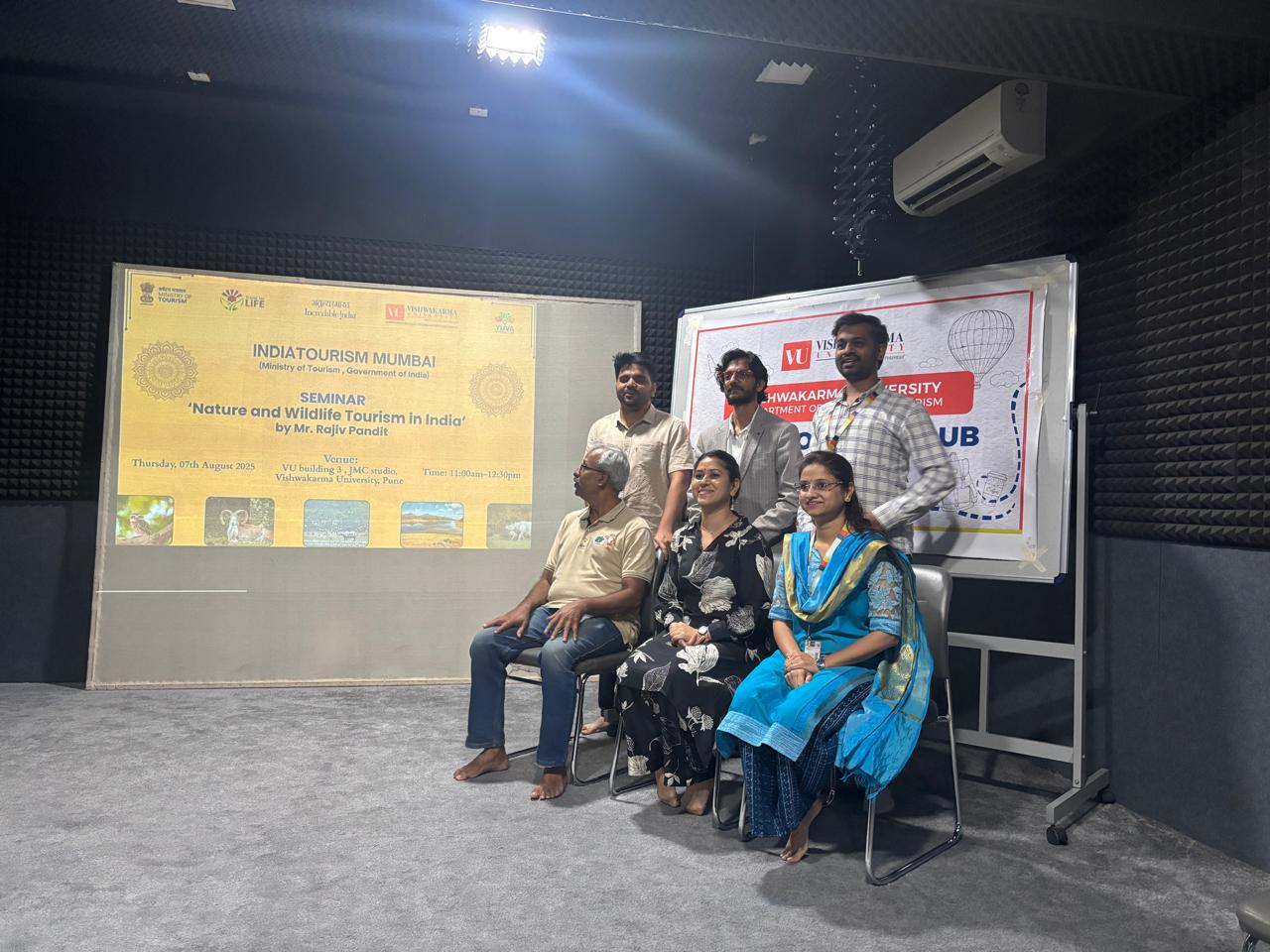
Report:
It was attended by 70 attendees from the Department of Travel and Tourism, JMC, and Economics.
Event Timeline:
- 11:00 AM – 11:15 AM Guest arrival & welcome refreshments
- 11:15 AM – 11:35 AM Guest introduction
- 11:35 AM – 1:15 PM Main session
On Thursday, 7th August 2025, the Yuva Tourism Club of the Department of Travel and Tourism, in collaboration with the Department of Journalism and Media Communication (JMC) at Vishwakarma University, organized a seminar titled “Nature and Wildlife Tourism in India.” The session was held at the JMC Studio in Building 3, from 11:35 AM to 1:15 pm, and was attended by students from Semesters III, V, and VII, ensuring active participation from across the department.
The seminar was conducted by Mr. Rajeev Pandit, Founder-Director of Jeevidha, Pune, and a renowned figure in the fields of wildlife, ecology, and geology. Known for his deep knowledge and hands-on experience, Mr. Pandit brought a wealth of insights to the discussion. Right from the start, his approachable manner and engaging style captured the attention of the audience.
He began by explaining the concept of wildlife tourism in the Indian context, describing it as an essential tool not only for promoting travel but also for spreading awareness about the country’s rich biodiversity. Through real-life examples and anecdotes from his professional journey, he painted a vivid picture of India’s natural treasures — from the dense forests of Central India to the high-altitude wildlife of the Himalayas.
One of the key points he addressed was the balance between tourism and conservation. He emphasized that tourism, when planned responsibly, can contribute significantly to protecting endangered species and preserving natural habitats. However, he also warned against the negative impacts of over-tourism, habitat disruption, and irresponsible practices by visitors. This created a thought-provoking moment for students, as it linked their academic knowledge to real-world challenges. Mr. Pandit also spoke about the role of youth in conservation. He encouraged students to adopt eco-friendly travel habits, support community-based tourism initiatives, and participate in conservation projects. His words carried both urgency and hope, leaving the audience with a sense of personal responsibility towards the environment.
The seminar concluded with a lively Q&A session, where students asked questions ranging from career opportunities in wildlife tourism to the role of technology in conservation efforts. Mr. Pandit patiently addressed each query, providing practical advice and sharing stories that were both educational and inspiring
Feedback analysis:
The respondents were drawn from different programs within the department, with the majority belonging to BAJMC and BATT. This spread indicates that the event appealed across specializations, suggesting the broad relevance of the seminar theme. The data also highlights the potential to further engage students from less represented courses, ensuring more balanced participation in future events.
1.How would you rate the seminar
The seminar received predominantly positive feedback, with most participants rating it as either Amazing or Good. This reflects strong satisfaction with the event’s overall delivery, planning, and execution. The absence or minimal presence of lower ratings like Below Average or Poor suggests that the seminar met or exceeded most attendees’ expectations, reinforcing the event’s quality and effectiveness.
2.How would you rate the interativity of the seminar
Participants generally found the seminar interactive, with the majority opting for Amazing or Good. This indicates that the session likely encouraged engagement, discussion, and active participation. Since interactivity is a key driver of attention and retention, the feedback implies the presenters succeeded in creating an engaging atmosphere. Any responses that fell into Average or below highlight an opportunity to further involve quieter participants or introduce more hands-on activities.
3.How informative did you find the event?
The majority of respondents rated the event as Very Informative or Informative, signaling that the seminar content was well-researched, relevant, and delivered in an understandable way. This suggests the event achieved its educational goals, providing participants with valuable insights. Minimal ratings in the lower categories indicate only a small portion of the audience felt the content was average or lacked depth, which could be addressed in future iterations by tailoring topics to varying knowledge levels.
4.How interested will you be to attend any events organized by the department pf travel and tourism?
There was a strong willingness among attendees to participate in future events organized by the Department of Travel and Tourism, with many Strongly Agreeing or agreeing to attend again. This positive response signals that the event left a lasting impression and built trust in the department’s ability to host meaningful activities. The presence of a few Neutral or lower responses suggests that ensuring variety and novelty in future topics could help maintain high interest levels.
